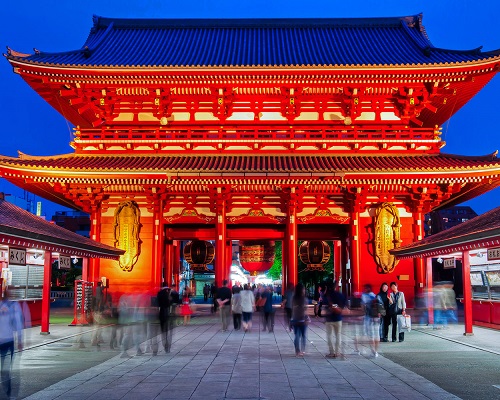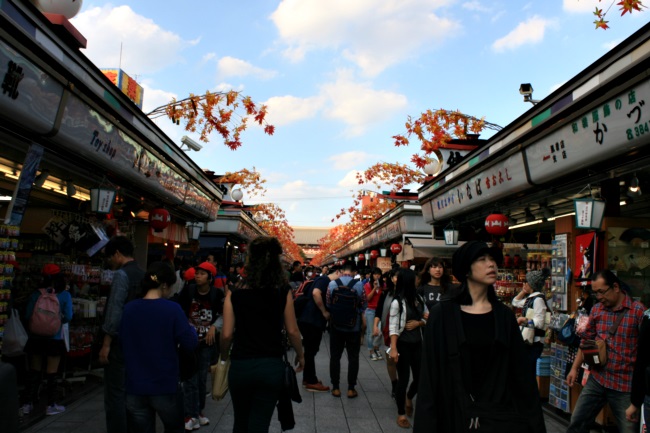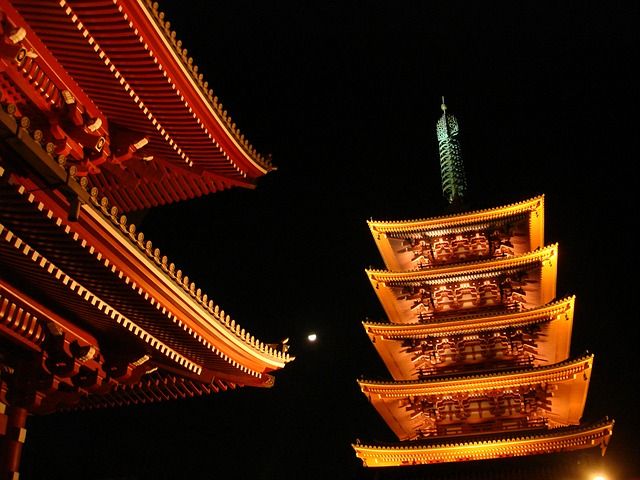Tokyo, Japan Jan. 24 Fri 3:17AM
Senso-ji, the Oldest Temple in Tokyo
In the ancient days when Tokyo was still the fishing village Edo, legend has it that two brothers kept catching a statue of the Shinto religion’s goddess of mercy, Kannon. No matter how many times they threw the statue back into the river, they kept catching it again. Finally, in the year 645, a temple to house the statue was created, and has stood in the same spot since that day. The statue that the two brothers fished up is still said to be enshrined in the temple, hidden away in a sanctum of sanctums.
Today, Senso-ji is Tokyo's largest and oldest Buddhist Temple, and is one of the must-sees in Tokyo. Leading up to the temple itself is Nakamise, an old-style shopping street where you can find Japanese art, kimono, souvenirs, and food. Around the temple, there are also food stalls selling amazingly delicious street fare- yakisoba (fried noodles), fried chicken, skewered meats, and more.

Nakamise Shopping Street

In the middle of downtown Tokyo, Senso-ji can be a respite from the ultra-modern. It's fun and kitschy, but it's also a beautiful reminder of the traditional Japanese culture that has captivated the world for centuries. The nearby five storied pagoda is grand enough to move the hearts even of modern people who are accustomed to skyscrapers, and all of the sights, sounds, smells, and details of the temple complex will leave an indelible, otherworldly impression.

The structure of the Senso-ji temple complex is a good example of how Tokyo and Japan in general balances its culture. After you pass through the majestic Kaminari-mon, or “lightning gate,” you will pass though a long series of shops catering traditional snacks and goods, the oldest such shopping street in all of Japan. In fact, many shopping districts in Japan originally sprang up to cater to pilgrims visiting famous temples, and while in this case the temple has remained the main focus, in many instances the shopping districts overshadowed the temples to which they were originally ancillary. Experiencing Senso-ji can act as a template to reverse the equation for you, and maybe give you a different perspective on the consumerist culture of modern Japan, offering a glimpse of its deep roots in the most glorious fashion imaginable.
